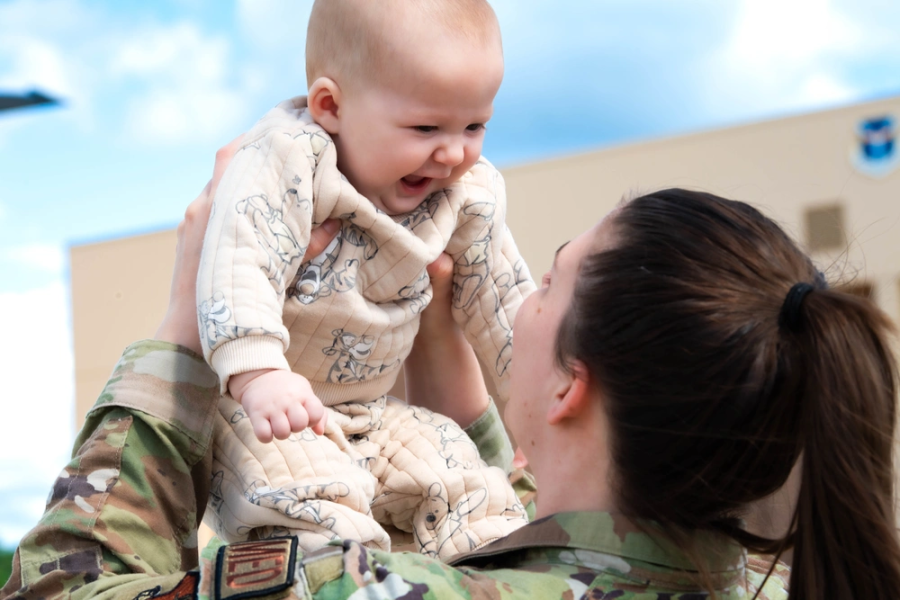In a Feb. 11 memo, the Department of the Air Force reiterated its policies on “Family Days” and said it would “evaluate” them over the next few weeks “to ensure they align with our ability to support warfighter readiness,” raising concerns among service members that the cherished tradition could be reduced or eliminated altogether.
Family Days are typically granted by commands to give service members an extended weekend, often around a federal holiday. Each command has its own schedule, which can vary from year to year. These schedules are generally determined and announced well in advance, sometimes as much as two years ahead of time. For instance, Air Force Global Strike Command has scheduled 11 Family Days for 2025, while Air Education and Training Command plans to include six days, starting with a Friday before Memorial Day.
The Feb. 11 memo does not cancel any existing Family Days or forbid future ones. It does, however, note leave policies for both military and civilian personnel; while service members may receive a day off for Family Days, civilian employees are not automatically granted additional leave. This is due to federal law, which does not permit extra leave for civilians. The memo stresses that civilian employees are expected to either report to work or use accrued leave if they are not required for duty on Family Days.
“The primary purpose of the memo is to clarify that civilian employees must either be at work or be on leave for Family Days,” an Air Force spokesperson told Air & Space Forces Magazine.
Commanders, directors, and supervisors are encouraged to treat these days as “liberal leave,” allowing civilians to use previously earned compensatory time, approved time-off awards, or regular leave as eligible.
However, the memo ends by stating that “Over the next several weeks, DAF will evaluate Family Days to ensure they align with our ability to support warfighter readiness.”
On social media, Airmen and Guardians reacted with concern that Family Days might be phased out to prioritize operational needs. The service spokesperson did not provide further details on whether service members’ Family Days will be impacted in the future.
The Department of Defense has introduced several policy shifts under the new Trump administration, changing some of the work flexibility that service members and civilian employees had previously had.
The most notable change has been the move to phase out telework agreements. As the Air Force faces challenges in accommodating its full-time workforce due to a shortage of suitable workspaces, the service continues to issue new guidance to determine which employees will remain eligible for remote work.
Under the current Office of the Secretary of Defense regulations, some employees may continue teleworking if they meet specific criteria, such as having reasonable accommodations, lacking adequate office space, or holding an approved deferred resignation status—a program allowing federal workers to resign but continue receiving pay through September. According to a White House statement, approximately 75,000 federal workers have participated in the program as of Feb. 12.
Additionally, Air Force personnel required to relocate due to a service member spouse’s assignment, or those covered by collective bargaining agreements, may also qualify for telework.
Air Force Public Affairs was unable to verify current statistics on telework employees, but according to a 2024 report, more than 70,000 civilian employees used at least some form of telework. This represents nearly half of the department’s entire civilian workforce.
“We are still working through our return to in-person work plan aligning with implementation guidance from the Department of the Air Force,” an Air Force spokesperson wrote in an email statement. “The number of remote work and telework employees is evolving as we work to comply with all executive orders.”
The department is still finalizing a system for submitting exemption requests, which will be reviewed by the Secretary of Defense.
